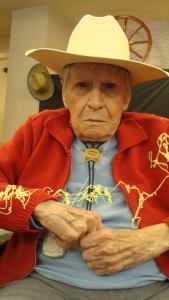 “You can start over when you’re your age, not at my age.” That’s what my mother-in-law said about moving closer to kids when getting older. “If you want to be closer when we’re old, you have to move here.” She’s not even that old, but there’s no point in arguing. When she and dad moved to their beautiful retirement town, in Florence, Oregon, they decided that was it—period.
“You can start over when you’re your age, not at my age.” That’s what my mother-in-law said about moving closer to kids when getting older. “If you want to be closer when we’re old, you have to move here.” She’s not even that old, but there’s no point in arguing. When she and dad moved to their beautiful retirement town, in Florence, Oregon, they decided that was it—period.
Florence is on the Oregon coast, directly west of Eugene. The average age of people living in Florence is 59.4*; and the average age of the country is 37.2*.
Don’t let that average age fool you, though. This community is active in volunteerism, activism, and recreation. Sure, there are quilters and bingo players. But, you’ll also find authors, artists, dog agility trainers, yoga practitioners, and bus drivers who take cancer patients to Eugene to the hospital.
I have talked with people who have retired in Florence, and are getting pressure to move closer to children.
It makes sense to most adult children to move mom or dad closer to you. You’ve got your own kids you can’t uproot; you have a career and you can’t move or work remotely… and maybe you just like where you live. You may be concerned that by moving mom or dad closer to you, you may be uprooting them from:
• Daily support systems and friends
• Clubs, churches or spiritual connections
• Recreational activities, favorite restaurants, barbers, and shopping
• Neighborhood watch groups, and walking or jogging routes
• And, most importantly, the community that they have been connected to for years or perhaps decades.
Many adults are struggling with living far away from parents who are entering elderhood. There are needs that can’t be attended to unless you are right there, right? Well, yes, and no. You may find there is support right in mom and dad’s back yard!
What type of support is available in their hometown? Florence is a small retirement town, but is lacking in enough geriatricians and major medical treatment services. As a result, non-profits have popped up to serve the needs of the population such as the Friends of Florence.
Are senior housing options in their hometown? Visit (or ask your parents to visit) independent living, assisted living and memory care communities. Most people still think of grandma’s 1960 nursing home when they think of these communities. That’s just not the case anymore. Most are modern, comfortable and community-based environments where more elders are thriving simply because they are not alone at home.
Introduce your parents to technology. Use Facebook to stay connected and keep them connected to friends and family around the world. Get them a tablet or smartphone. Ask the senior living communities you are considering if they have wi-fi and if they regularly update their Facebook page on what’s happening. Ask them if they can text or email you with periodic updates.
Plan ahead. Create a plan together. Discuss things like who to call in an emergency. How about medical alert systems or other home emergency system? Who will check on them regularly? How will they ensure they eat well? How will they take care of home maintenance? The best plans are those made before something happens.
Talk finances. Find out where their income is. Low-income services such as Meals on Wheels may be able to help. The Veteran’s Aid and Attendance benefit may be available to veterans and surviving spouses.
At the very least, before they get old enough to need any help, it’s worth finding out where they want to live.
For more examples of True North Elderhood, we invite you to follow Compass Senior Living on Facebook.
* Statistics courtesy of city-data.com
 About the Author: Amira T. Fahoum is the Director of Marketing and Director of Operations, Northwest Region for Compass Senior Living located in Eugene, Oregon. Her path to senior living started when she simply decided to be open to possibilities in life. Possibilities are what led her to eight years of learning the senior living industry in roles ranging from Administrative Assistant to Director of Sales and Marketing. Possibilities also led her into the world of education technology for almost three years. Now, on her journey with Compass, she has found true reward in working with the people that care for others. She lives in Eugene with her husband, Michael, where they enjoy golf, travel and volunteering.
About the Author: Amira T. Fahoum is the Director of Marketing and Director of Operations, Northwest Region for Compass Senior Living located in Eugene, Oregon. Her path to senior living started when she simply decided to be open to possibilities in life. Possibilities are what led her to eight years of learning the senior living industry in roles ranging from Administrative Assistant to Director of Sales and Marketing. Possibilities also led her into the world of education technology for almost three years. Now, on her journey with Compass, she has found true reward in working with the people that care for others. She lives in Eugene with her husband, Michael, where they enjoy golf, travel and volunteering.
